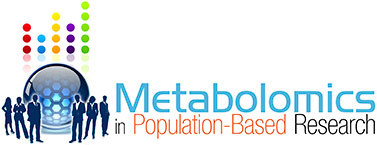
On this page...
Overview
Metabolomics is the study of small molecules of both endogenous and exogenous origin, such as metabolic substrates and their products, lipids, small peptides, vitamins and other protein cofactors generated by metabolism, which are downstream from genes. This approach has received more attention in recent years as an ideal methodology to unravel signals closer to the culmination of the disease process.

Mukesh Verma, PhD
Branch Chief, Methods and Technologies Branch
vermam@mail.nih.gov
The compounds identified through metabolomic profiling represent a range of intermediate metabolic pathways that may serve as biomarkers of exposure, susceptibility, or disease. In short, it is a valuable approach for deciphering metabolic outcomes with a phenotypic change.
Until recently, metabolomics and other post-genomic platforms, such as proteomics and transcriptomics, have not been suitable for large-scale, high-throughput epidemiologic applications. Studies that employed metabolomics technologies have focused on toxicological, physiological, and disease responses in animal models and small-scale human studies. This has been due mainly to the limited capacity of the analytical platforms for sample throughput and the processing requirements for the enormous amounts of data created.
Improved sample preparation, robotic sample-delivery systems, automated data processing, and use of multivariate statistical and chemometric methods, with associated reductions in cost, are now allowing researchers to realize the potential for metabolic phenotyping in epidemiology. Investigators have begun to extend these studies to larger-scale population studies for biomarker discovery. With these studies comes the challenge of applying metabolomics technologies in a manner that generates meaningful results. Epidemiologists must strive to comprehensively understand the principles of metabolomics to determine when it is appropriate to use biomarkers identified using this technology, which includes the ability to determine when biomarkers have been validated sufficiently.
Funding Opportunities
EGRP encourages investigator-initiated grant applications on this topic.
View other EGRP, NCI, and NIH funding opportunities
NIH Metabolomics Interest Group
The Metabolomics Scientific Interest Group was created to help stimulate more interest in the field and aims to bring interested NIH program officials, intramural investigators and others together. The group will have periodic webinars and seminars that highlight recent work in the field. Additionally, a listserv is used to communicate information on upcoming metabolomics-related seminars, funding opportunities, and other NIH activities and initiatives.
Any member of the scientific community who is interested in the field of metabolomics and keeping abreast of NIH metabolomics-related activities and initiatives, please consider joining the Metabolomics Scientific Interest Group.
Relevant Research Resources
NCI Metabolomics Resources
- COnsortium of METabolomics Studies (COMETS)
This extramural-intramural partnership promotes collaboration among prospective cohort studies that follow participants for a range of outcomes and perform metabolomic profiling of individuals. The aim of COMETS is to facilitate an open exchange of ideas, knowledge, and results in order to accelerate the study of metabolomics profiles associated with chronic disease phenotypes (e.g. heart disease, diabetes, cancer). - Metabolomics Quality Assurance & Quality Control Consortium (mQACC)

This consortium aims to engage the metabolomics community to communicate and promote the development, dissemination, and harmonization of quality assurance and quality control best practices in the field of untargeted metabolomics.
NIH Metabolomics Resources
The National Institutes of Health Common Fund established the Metabolomics Program in 2012 to increase the national capacity in metabolomics. The goal of this funding program is to advance several core areas, including comprehensive metabolomics resource cores, metabolomics technology development, metabolomics reference standards synthesis, and training and educational activities in metabolomics. This investment will provide researchers with opportunities to increase the use of metabolomics in population-based studies, which will allow for broader biomedical and public health applications, including biomarker discovery, dietary assessment, and pharmacometabolomics, among others.
The NIH Common Fund Metabolomics Program was approved for a second stage of support from fiscal years 2018-2021. In the second stage of the program, Common Fund supported the development of resources that catalyze the effective use of metabolomics in basic and translational biomedical research. Investments in the second phase focused on establishing a robust national repository for metabolomics data with the goal of making all NIH-supported metabolomics data publicly accessible and available for reuse; developing new computational tools to facilitate the analysis and interpretation of complex metabolomics data sets; and supporting projects to expedite unknown metabolite identification.
- The University of California San Diego's Metabolomics Workbench
 , a resource sponsored by the NIH Common Fund, is a scalable and extensible informatics infrastructure which serves as a national metabolomics resource.
, a resource sponsored by the NIH Common Fund, is a scalable and extensible informatics infrastructure which serves as a national metabolomics resource.